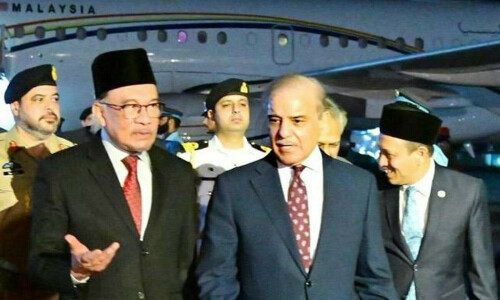ISLAMABAD: The Asian Development Bank says the outlook for Islamic banking and finance in Asia is bright, given that the region is home to more than sixty per cent of the world’s Muslim population, as well as Asia’s growing middle class, and has strong economic and financial fundamentals.
In addition, a combination of strong political support, a large investor base, and generous tax incentives are enticements to further Islamic finance in Asia, the ADB says in a new report on ‘Islamic Banking and Finance in Asia’.
The Muslim populations in different Asian countries, especially in South East Asia, are increasing. Rapid Muslim population growth and improving living standards may enhance the popularity of Islamic finance as a keen alternative to conventional financing mechanisms. In addition, investors from the Middle East and Asia are increasingly seeking to invest in products that are in line with their religious beliefs, report says.
Today, the global Islamic capital market is a multi-sector segment that includes holistic financial instruments, including sukuk Islamic equities, Islamic funds, and other Islamic structured products, such as real estate and investment trusts (REITs) and exchange traded funds (ETFs).
The Islamic equity sector has firmly established itself in key global bourses and jurisdictions, and the world’s major financial index providers, such as Dow Jones, Standard and Poor’s, and the FTSE, all have Sharia-compliant equity listings, which have allowed the Sharia-compliant equity and fund markets to blossom.
Although the Islamic banking and finance regulatory framework is well developed in some Asian countries, the regulatory and supervisory frameworks in many jurisdictions do not yet cater to the unique risks of the industry. Although Islamic banks appear to be well capitalised, the implementation of the Basel III Accord will involve challenges.
According to the report, it is important that national authorities use the leeway that the ‘Basel’ standards give to grant highly rated and tradable sukuk high-quality liquid assets (HQLA) status and take steps to deepen local sukuk and money markets.
Safety nets and resolution frameworks remain underdeveloped. Very few countries with Islamic banking have a full-fledged Islamic deposit insurance scheme with premiums invested in Shariah compliant assets.
The Islamic banking assets and financial products in Asia are much larger than those in Europe and North America, largely due to the Malaysian Islamic finance marketplace. Malaysia is one of the global leaders in Islamic financial services and held an estimated 10.0pc share of the global Islamic banking assets. Comparatively, Indonesia, Pakistan, and Brunei Darussalam have smaller shares, but their growth and regulatory developments in recent years have enabled them to expand their volume of Sharia-compliant banking assets.
Like Malaysia, several other Asian countries – including Bangladesh, Brunei Darussalam, Indonesia, and Pakistan – have both Islamic and conventional banking systems. Both approaches have contributed significantly to the deepening and widening of the financial sector through the use of innovative financial instruments that offer new ways of mobilizing resources for both public and corporate sectors.
Islamic financial instruments, such as sukuk, have financed a wide range of social and physical infrastructure as well as corporate investments, and they are becoming increasingly important for driving growth in the region.
The growing market of Islamic finance in Asia could be an appropriate source for different sectors, including infrastructure financing; government fiscal and revenue expenditure financing; corporate and retail financing; ethical investment solutions for corporate and retail investors; trade financing for international trade; and Islamic insurance services.
Islamic bonds traded along with conventional papers, such as stocks and options, in financial markets help Islamic banks to diversify and distribute risk and manage the liquidity of their portfolios. A pressing challenge is the lack of liquid and active secondary sukuk markets in key Islamic finance domiciles, which limits investors’ ability to trade sukuk instruments, the report points out.
Published in Dawn, July 28th, 2018














































